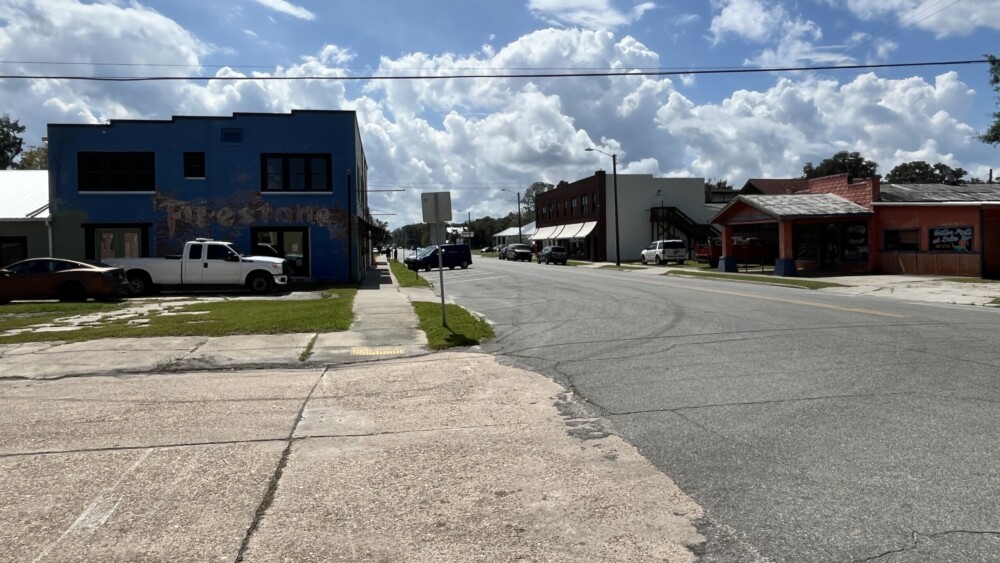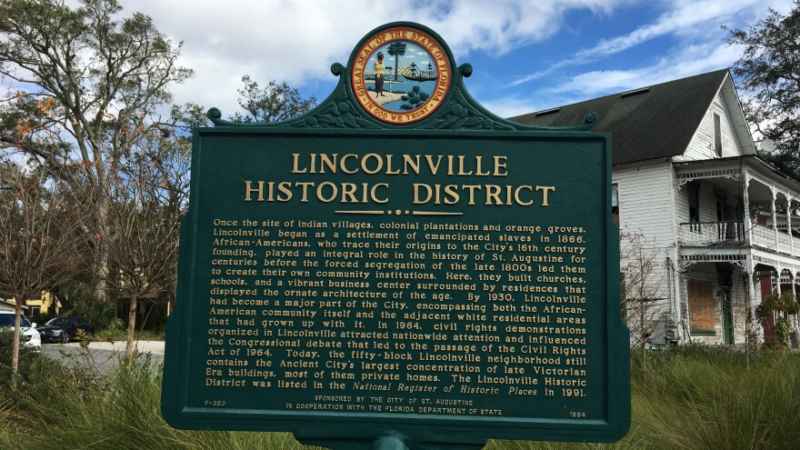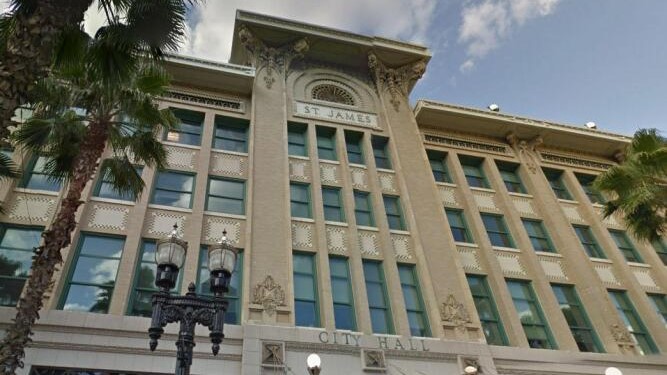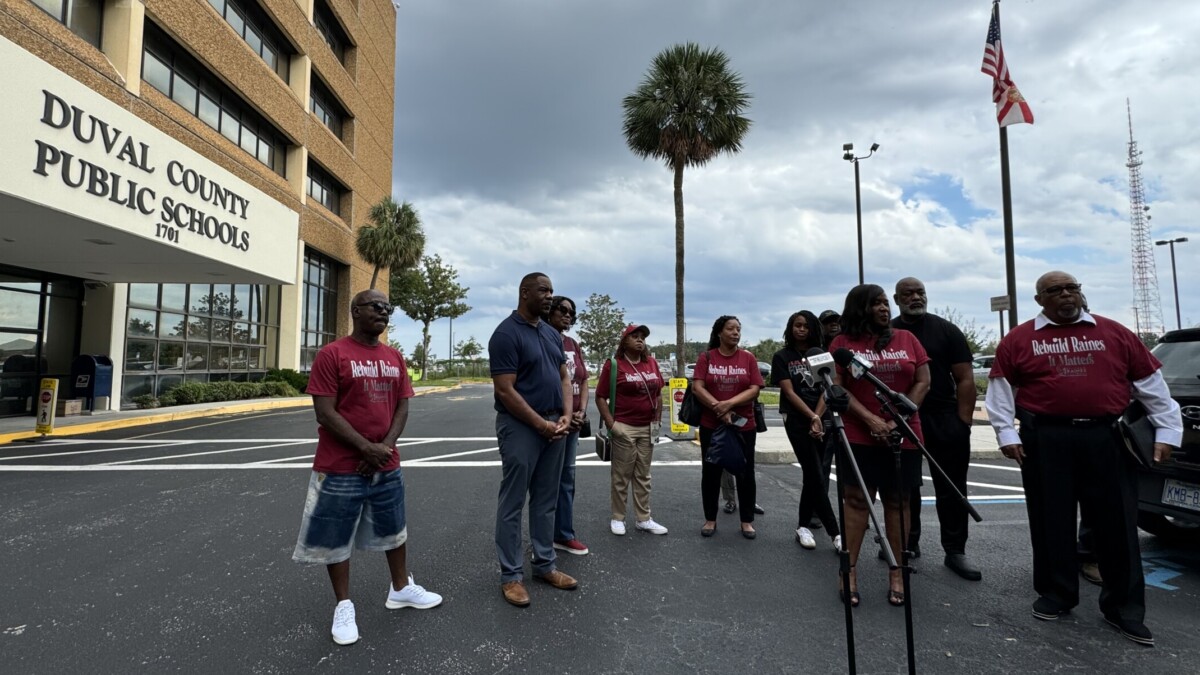Hastings, a southwest St. Johns County community with a population of around 1,200, was once a roaring hub for agriculture in Florida.
Nowadays, there’re a lot of things the town doesn’t have.
The nearest grocery store is 10 miles away, and so is the nearest pharmacy. The closest hotel is is either 30 minutes away in St. Augustine or 15 minutes down the road in Palatka, and the town’s main street is dotted with vacant buildings.
Hastings isn’t even really a town — not since residents voted to dissolve the municipal government.
The small agricultural community also once gained national notoriety for human trafficking, but its movers and shakers are now working overtime to put it back on the map, for positive reasons this time.
Times are a’changing — ‘with parameters’
They have cause to be hopeful.
In the last 12 months, five new businesses have set up shop along the town’s main street. Even more is on the way, like the county’s planned new library and community center, as well as a satellite campus of First Coast Technical College.
There’s a sense that the “revitalization and reoccupation” is creating a “perfect storm” of momentum, Hastings Main Street Association Chair Jena Dennis says.
“I think that’s what has so many people enthralled,” she tells Jacksonville Today.
In a community that had all but accepted its heyday was long past, the Main Street Association is fighting, she says, to give “the community its pride back.”
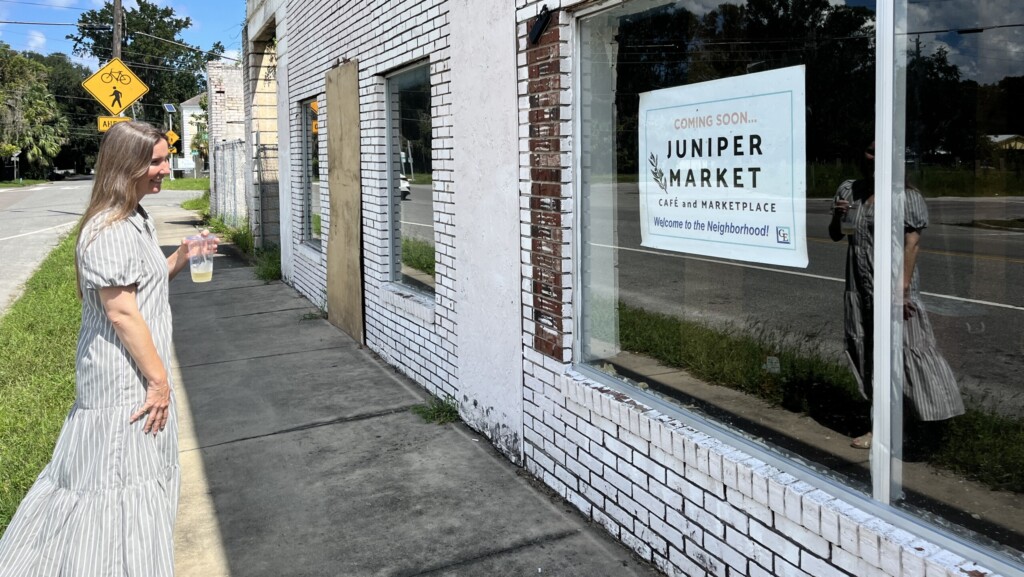
Dennis, who lives in St. Augustine, is far from the only person driving growth in Hastings, but her influence is strong.
As she tells it, she and her husband were looking for a new office for their real estate business. During a trip to the out-of-the-way Hastings, Dennis fell in love with a vacant 1920s-era building that was originally the Hastings Motor Co. The Dennises bought it for $200,000.
Now they own four others that are in various stages of revitalization and operation, like 308 N. Main St, a one-time funeral parlor that became an American Legion. Now, split into two storefronts, it’s the Hastings Coffee Co. and future home of Choco Latte Bakery.
And the former Motor Co. building? They’re planning to turn it into a venue for weddings, fundraisers and concerts.
Dennis hopes that bringing an event space to Hastings, along with growing the Main Street Association’s events like the newly sprouted Cabbage, Potato and Bacon Festival, could lead to what the community needs most.
“We would love a little boutique bed and breakfast or a hotel,” she says. “We have a lot of people wanting to come, and they’re having to drive out to … Palatka to stay.”
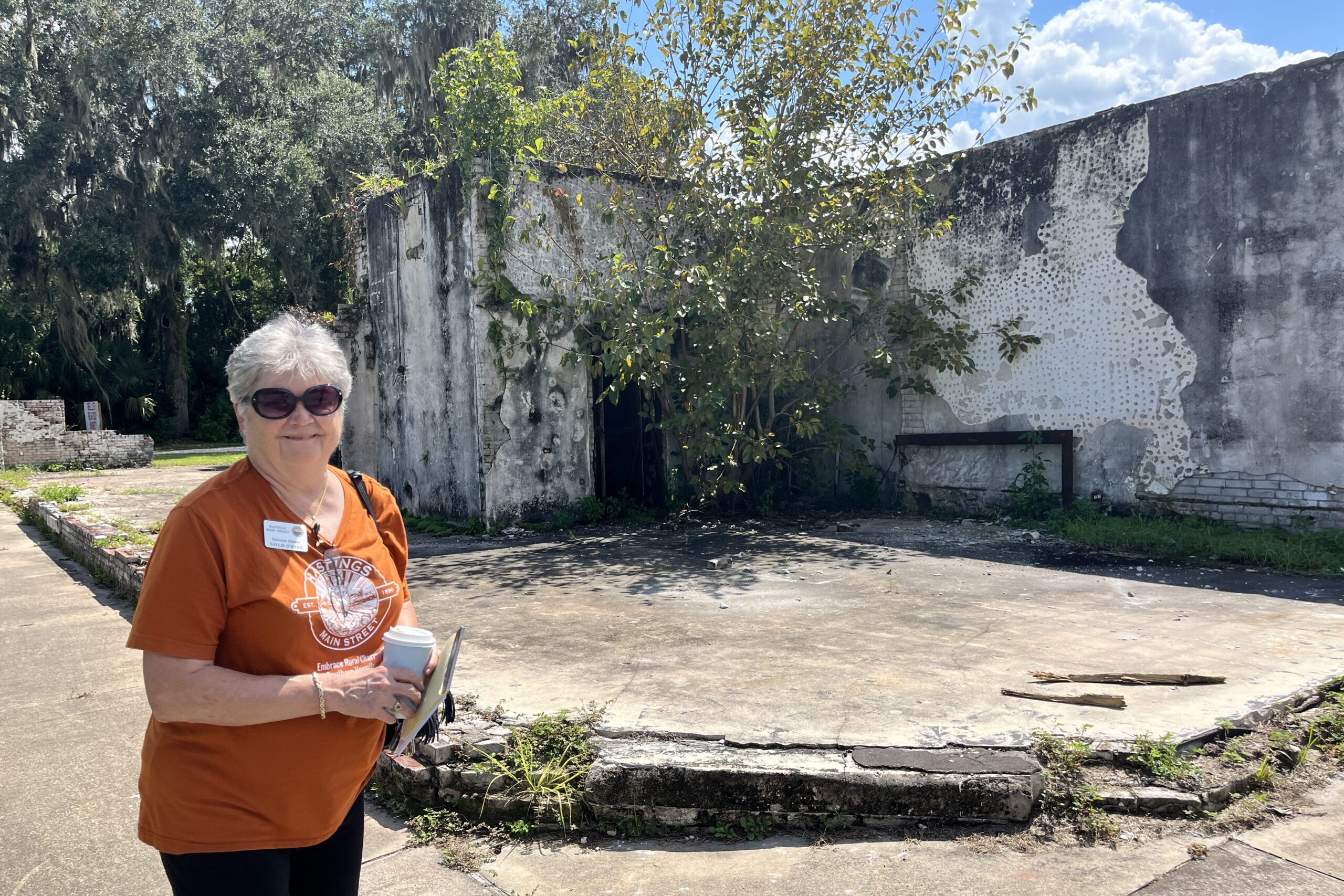
But all this change isn’t meant to turn Hastings into a new St. Augustine. Dennis and the rest of the Main Street Association are adamant that they want Hastings to grow on the locals’ terms and not at the rapid pace that so much of St. Johns County has.
At one point, a national dollar store chain reached out about setting up shop, and the Main Street Association said they weren’t interested.
People want change, Dennis says, but “change with parameters.”
“We don’t want a bunch of big corporate developers coming in and totally changing the small, rural charm that Hastings has,” she says. “We’re trying to restore all of these historic structures and keep them as historic as possible, but at the same time make them economically viable.”
Dennis says the Main Street Association is fulfilling an economic development role where there is no local government to do so — by seeking out and handling grant money, communicating with potential new business owners and planning town events.
“We want to be a facilitator, a transport of communication from the community to the county and the commissioners and all the other different state organizations that are involved in this process,” she says.
In the coming months the association hopes to have the new venue open, lay the groundwork for a Main Street streetscaping project and welcome new businesses like Juniper Market.
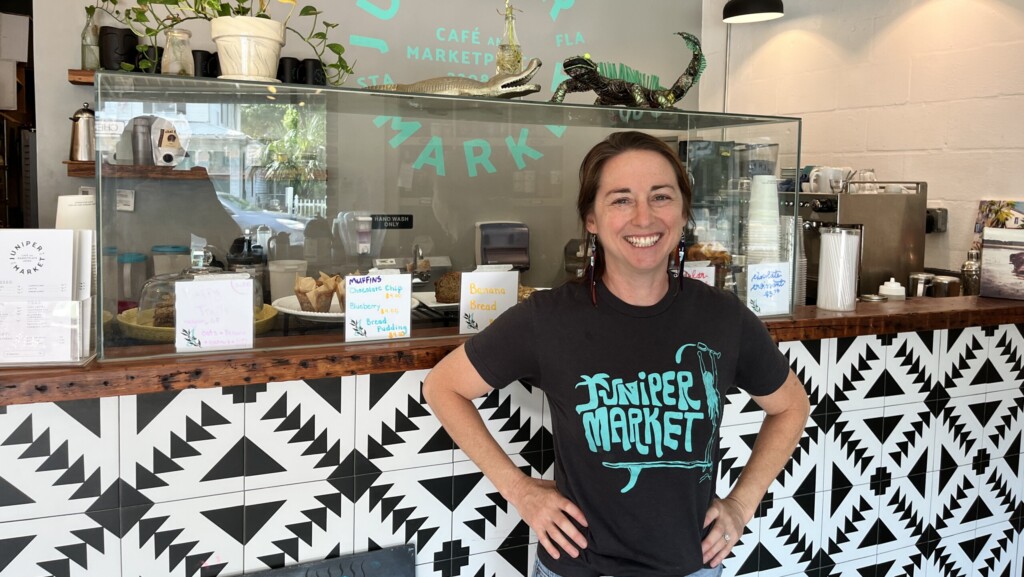
Jennifer Myers operates the popular Juniper Market coffee shop and eatery on San Marco Avenue in St. Augustine, and she’s excited to open her second location in Hastings.
Why open somewhere with fewer people and less foot traffic?
“This area is really the next place for St. Johns County,” she says. “It’s got that historic aspect and the small-town feel. We were just kind of bought in immediately.”
She believes Hastings could become a popular weekend getaway for people across the region who need a break from suburbia or city life.
Myers’ new spot, which will be at 422 N. Main Street, is planned to open next summer.
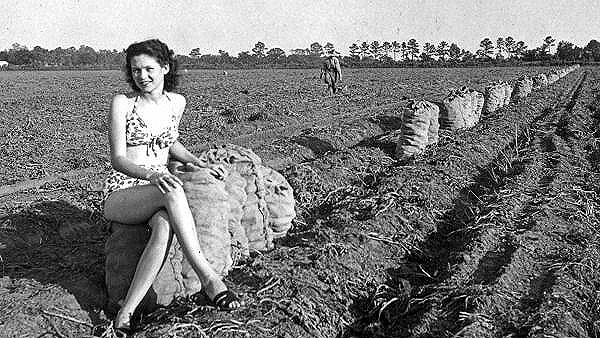
Florida’s Potato Capital
Founded in 1890 by Thomas Horace Hastings, a cousin of Florida industrialist Henry Flagler, the once-booming town supplied potatoes all over the U.S. Its location on the Florida East Coast Railway and the Dixie Highway meant it had a front row seat to the state’s early agriculture-fueled boom.
But as the 20th century continued, the interstate bypassed Hastings, the Civil Rights era split the community, and a devastating fire ravaged the town in 1985. The town slowly but steadily fell into disrepair, culminating with the dissolution of its government six years ago. The town’s meager tax base wasn’t enough to fund basic necessities, and Hastings officially became an unincorporated community of St. Johns County in March 2018.
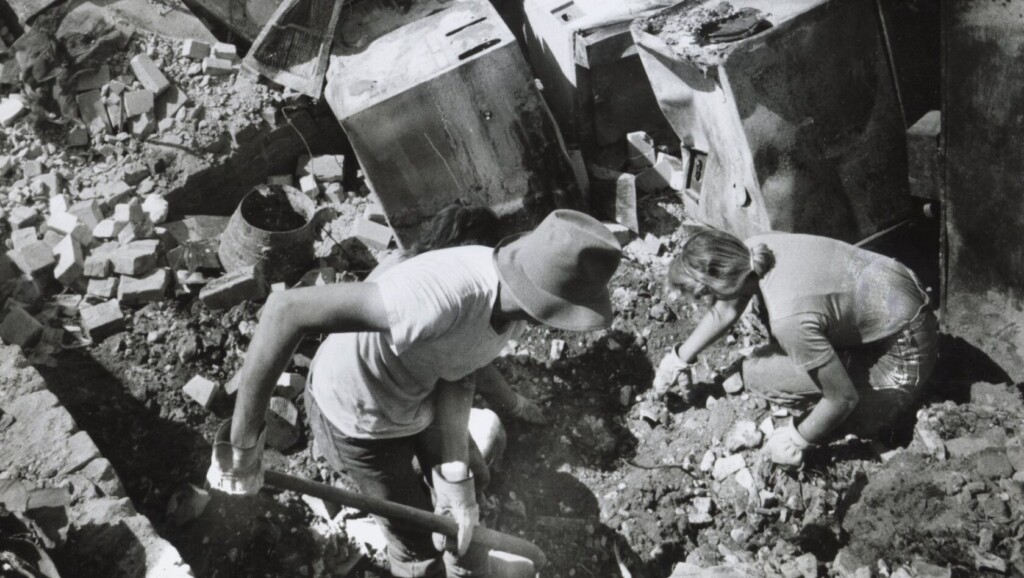
There’s a darker side of Hastings’ past, too, and it’s not ancient history.
For years, into the 21st century, farm owners took advantage of forced labor, mostly by Black men who lived in conditions akin to modern-day slavery. News reporting over the last 20 years revealed people were coerced into working on farms with drugs, alcohol and empty promises of high-paying jobs. They ended up paying a premium to live in squalor, racking up debt at a company store.
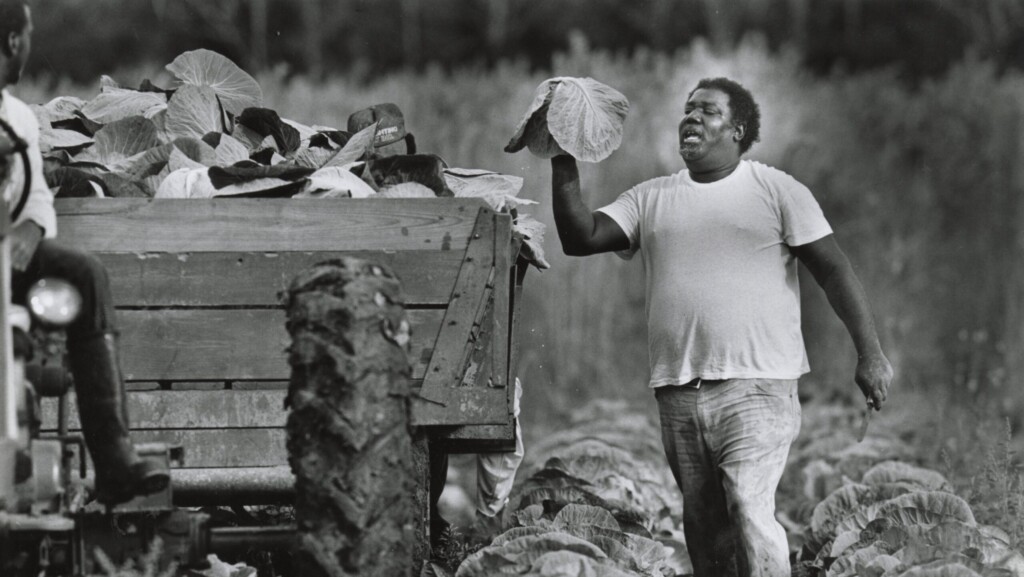
Malea Guiriba knows the town’s darkness well. When Guiriba was starting off in Hastings 15 years ago, she helped exploited farmworkers find a pathway to freedom.
She founded the nonprofit organization Pie in the Sky, which works to feed people in need.
Guiriba wanted to see Hastings become a safe, equitable town for all of its residents.
Today, she supports the work the Main Street Association is doing because it’s what she wanted to do all along: make Hastings a better place.
“The good thing about what Jena and her group is doing is the thing that I could never get done, and that’s their bringing light to a very dark place,” Guiriba tells Jacksonville Today. “Evil can only flourish when there’s darkness.”
Dennis, with the Main Street Association, says many cities, including St. Augustine, have fraught histories when it comes to racial equity, and Hastings is ready to move on from its past.
She also touts the town’s diversity (with a similar number of Black and white people according to the last Census) and says, more than anything, she hopes the Mainstreet Association has helped contribute to positive change.
“They’ve been pulled down for so long by all these different traumas … (but) all people talk about now is what’s coming, what’s happening, all the good stuff. The focus is truly on that,” she says. “You very rarely have people bringing up the past anymore, and I think that’s a testament to the fact that people are wanting the change.”
The Main Street Association’s next big event, on Nov. 2, is the Hastings Hoedown, with the town’s first-ever pound cake cookoff, square dancing, barbecue and more.
Pie in the Sky, meanwhile, will host its annual Peace in the Park event on Oct. 27 at Eddie Vickers Park, 399 S. Riberia St., in St. Augustine, with live music and a bake sale. The group will also invite attendees to help form a human peace sign.



